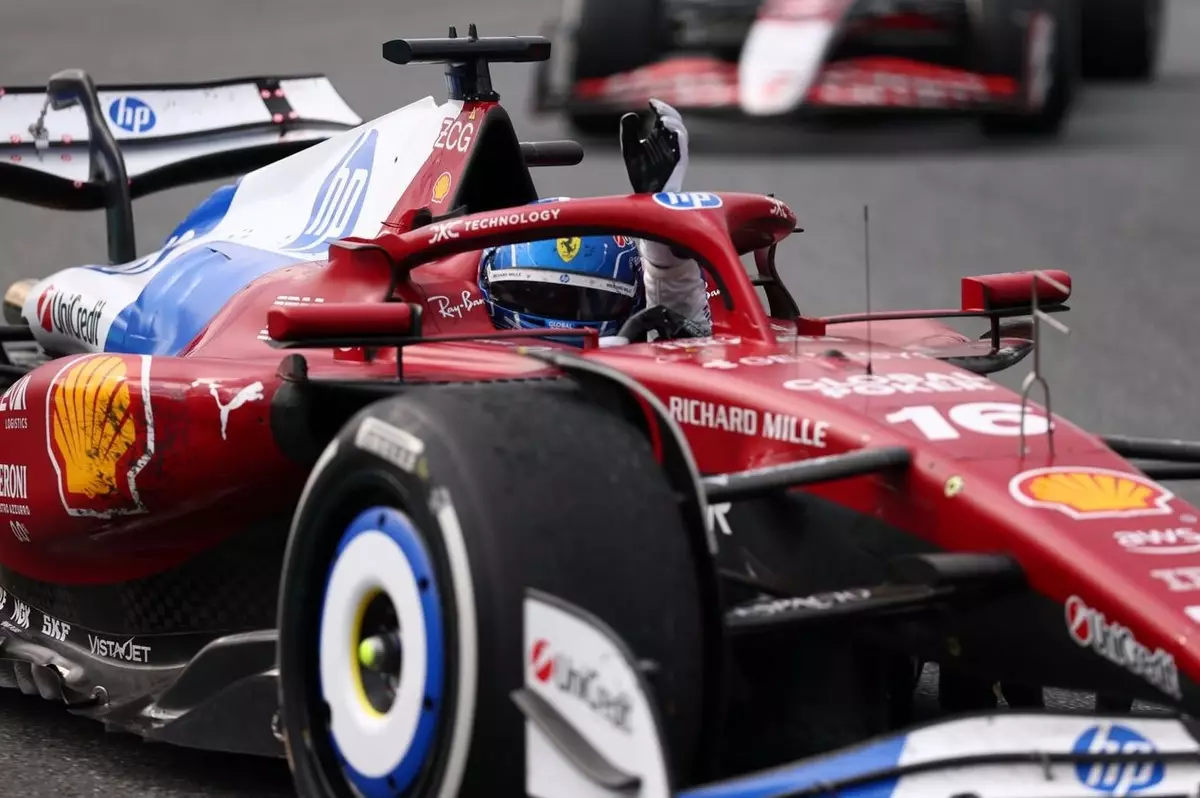Resolving Racing Rivalries Charles Leclerc’s Perspective on Team Strategy
In the thrilling and ever-evolving world of Formula 1 racing, every decision, no matter how small, can have a monumental impact on the outcome of a race. The Miami Grand Prix recently brought this truth into sharp focus when Ferrari drivers Charles Leclerc and Lewis Hamilton found themselves at odds over team strategy during some pivotal moments. Watching Leclerc handle the situation with a calm yet assertive demeanor was a reminder of how crucial effective communication and teamwork are in this high-pressure environment. Despite the tension, Leclerc’s professionalism shone through as he expressed having “no bad feelings” towards Hamilton.
This incident highlights the profound influence that team dynamics can have on race performance. Leclerc’s insightful comments didn’t just reflect his understanding of his own position but also showed empathy towards Hamilton’s circumstances. This indicates that true racing experience is about more than just competition; it involves recognizing and respecting your teammate’s strategies. Maintaining harmony in such a competitive atmosphere is vital, and Leclerc’s acknowledgment of Hamilton’s aggressive tactics showcases a level of maturity that isn’t always present in high-stress situations.
Key Takeaways
- Team dynamics greatly influence race outcomes and require effective communication.
- Tire strategy is crucial and demands coordinated decision-making.
- Emotional resilience is key to navigating competitive racing challenges.
The Role of Tire Strategy in Competition
At the heart of the Miami GP conundrum was tire strategy—a critical component that can make or break a race. With Hamilton on medium tires and Leclerc on hard tires, the two drivers were locked in a tactical standoff, complicated further by the demands of the racing conditions. Leclerc’s understanding of Hamilton’s position highlights the complexities involved in tire management and the split-second judgments drivers must make. His reflection points out that success often hinges on such nuances.

Leclerc brought forward an important insight when he emphasized the need for better communication regarding tire strategies within his team. Both he and Hamilton seemed to be hindered by a lack of cohesive decision-making from Ferrari, resulting in missed opportunities during critical moments. This critique wasn’t aimed at Hamilton alone but underscored a systemic need for enhanced strategic planning. It calls for proactive measures to address potential conflicts in real-time, thereby reducing miscommunication and frustration among drivers.
Emotional Weight of Competitive Racing
No matter how composed they appear, even top athletes like Leclerc feel the emotional weight during races. His reflections on handling frustrations shed light on the delicate balance between performance pressures and mental composure. As Leclerc expressed his struggles with tire degradation while trailing behind Hamilton, it became clear that mental aspects often impact physical performance significantly. Drivers are not just operating machines; they are humans processing intense emotions with tangible effects on their racing output.
It’s fascinating how Leclerc acknowledged his difficulties were compounded by fighting for minor points, illustrating a broader human element within racing. This environment cultivates not only rivalries but also personal challenges that each driver must navigate. His candid admission of frustration about his position provides insight into how even elite athletes deal with setbacks and uncertainties inherent in their sport.
Learning from Adversity
Looking back at the Miami Grand Prix, Leclerc has emerged not only as a skilled racer but also as a thoughtful strategist who values learning from adversity. His message to Ferrari—that they should regroup and strategize more effectively—reflects a mature approach to overcoming challenges. Instead of casting blame, he called for collective improvement, emphasizing the importance of analyzing races as opportunities for growth and development as a unified team.

This mindset contributes to cultivating a positive team culture focused on resilience and continuous improvement. Leclerc’s perspective could serve as an essential guiding principle for Ferrari as they assess every aspect of their race day experiences. Rather than dwelling on disappointing results, his outlook suggests embracing teamwork, strategic planning, and learning as keys to future success.
Final Thoughts
Ultimately, being part of a Formula 1 team transcends individual accolades; it’s all about collaboration and striving for excellence together. Charles Leclerc’s journey continues to unfold with ample opportunities for Ferrari to leverage their experiences into creating a stronger path forward in this ever-changing sport. By focusing on synergy and strategic innovation, they stand poised to conquer new challenges on the track.
Formula 1
Charles Leclerc
Team Strategy
Racing Rivalries


Leave a Reply